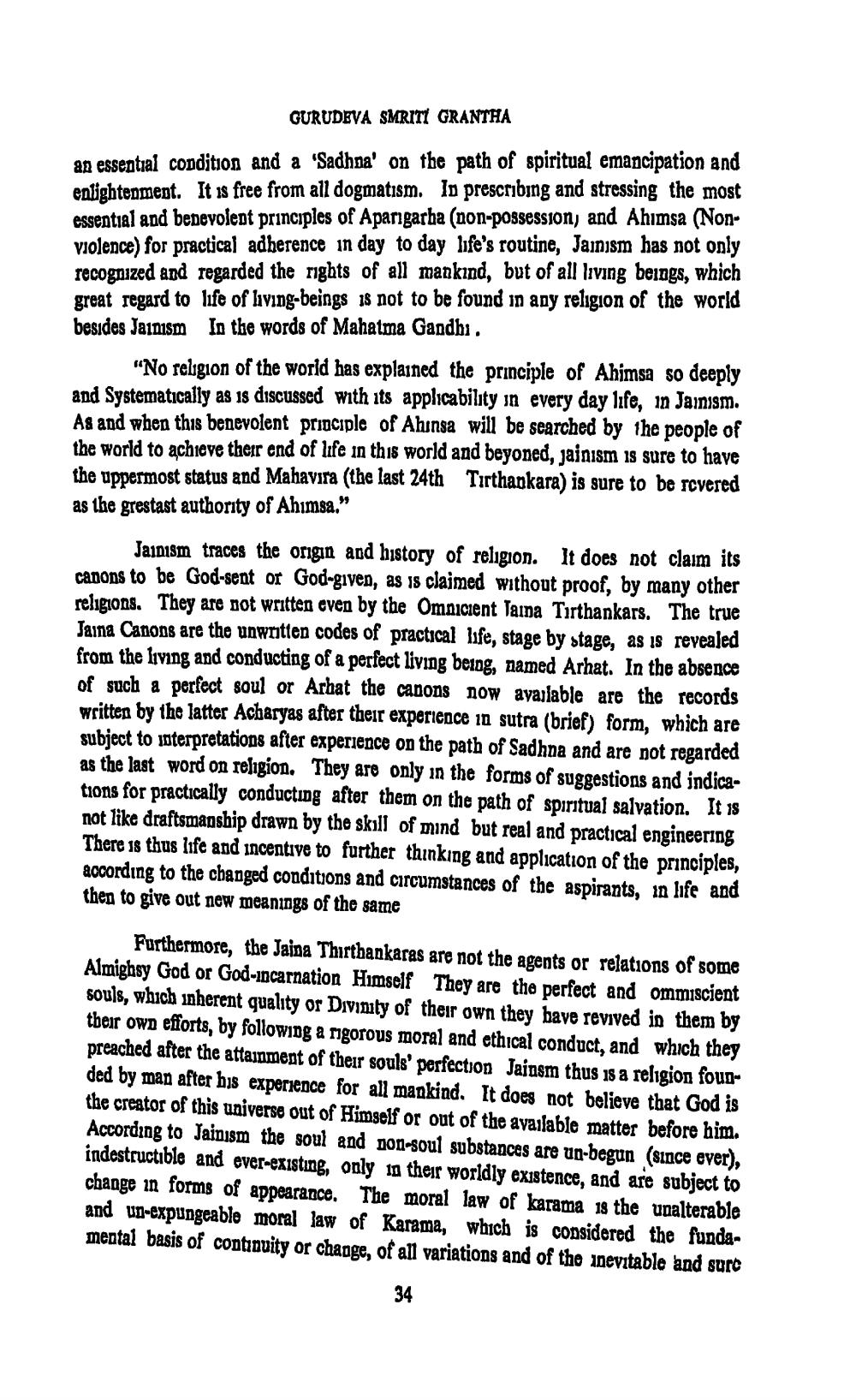________________
GURUDEVA SMRITI GRANTHA
an essential condition and a 'Sadhna' on the path of spiritual emancipation and enlightenment. It is free from all dogmatism. In prescribing and stressing the most essential and benevolent principles of Aparigarha (non-possession, and Ahimsa (Nonviolence) for practical adherence in day to day life's routine, Jainism has not only recognized and regarded the rights of all mankind, but of all living beings, which great regard to life of living-beings is not to be found in any religion of the world besides Jainism In the words of Mahatma Gandhi.
"No religion of the world has explained the principle of Ahimsa so deeply and Systematically as is discussed with its applicability in every day life, in Jainism. As and when this benevolent principle of Ahinsa will be searched by the people of the world to achieve their end of life in this world and beyoned, Jainism is sure to have the uppermost status and Mahavira (the last 24th Tirthankara) is sure to be revered as the grestast authority of Ahimsa."
Jainism traces the origin and history of religion. It does not claim its canons to be God-sent or God-given, as is claimed without proof, by many other religions. They are not written even by the Omnicient Taina Tirthankars. The true Jaina Canons are the unwritten codes of practical life, stage by stage, as is revealed from the living and conducting of a perfect living being, named Arhat. In the absence of such a perfect soul or Arhat the canons now available are the records written by the latter Acharyas after their experience in sutra (brief) form, which are subject to interpretations after experience on the path of Sadhna and are not regarded as the last word on religion. They are only in the forms of suggestions and indications for practically conducting after them on the path of spiritual salvation. It is not like draftsmanship drawn by the skill of mind but real and practical engineering There is thus life and incentive to further thinking and application of the principles, according to the changed conditions and circumstances of the aspirants, in life and then to give out new meanings of the same
Furthermore, the Jaina Thirthankaras are not the agents or relations of some Almighsy God or God-incarnation Himself They are the perfect and ommiscient souls, which inherent quality or Divinity of their own they have revived in them by their own efforts, by following a rigorous moral and ethical conduct, and which they preached after the attainment of their souls' perfection Jainsm thus is a religion founded by man after his experience for all mankind. It does not believe that God is the creator of this universe out of Himself or out of the available matter before him. According to Jainism the soul and non-soul substances are un-begun (since ever), indestructible and ever-existing, only in their worldly existence, and are subject to change in forms of appearance. The moral law of karama is the unalterable and un-expungeable moral law of Karama, which is considered the fundamental basis of continuity or change, of all variations and of the inevitable and surc
34




